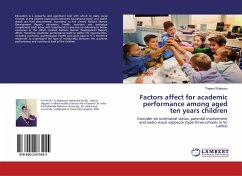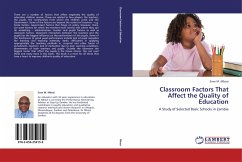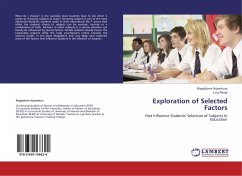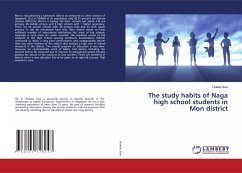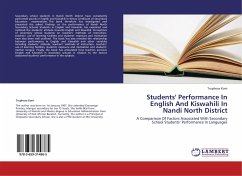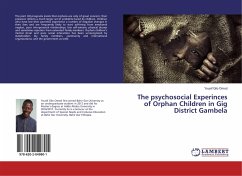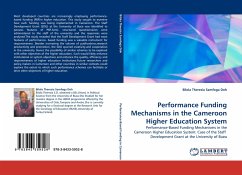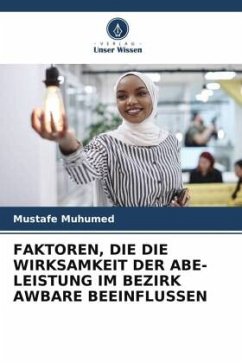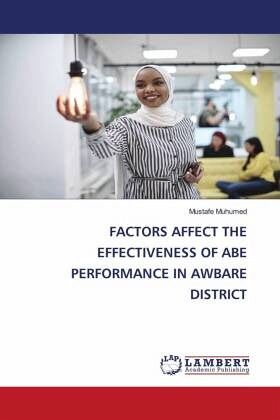
FACTORS AFFECT THE EFFECTIVENESS OF ABE PERFORMANCE IN AWBARE DISTRICT
Versandkostenfrei!
Versandfertig in 6-10 Tagen
29,99 €
inkl. MwSt.

PAYBACK Punkte
15 °P sammeln!
The general objective of this book is to assess factors that affect the effectiveness of alternative basic education performance in Awbare of Ethiopian Somali regional state: the case of Lafaissa cluster. Using purposive sampling technique, Lafaissa cluster resource center was select as study area. A total number of 105 respondents were select to participate in this study. In addition, the study employed several questionnaires, interview, observation and focus group discussion as instruments of data collection. Major finding were: the findings of this book revealed ABE program exist input prob...
The general objective of this book is to assess factors that affect the effectiveness of alternative basic education performance in Awbare of Ethiopian Somali regional state: the case of Lafaissa cluster. Using purposive sampling technique, Lafaissa cluster resource center was select as study area. A total number of 105 respondents were select to participate in this study. In addition, the study employed several questionnaires, interview, observation and focus group discussion as instruments of data collection. Major finding were: the findings of this book revealed ABE program exist input problems like large student to classes, to facilitators' ratio, shortage of materials and supplies and inadequate practice opportunities for students militated against effectiveness ABE centers. In addition, the book revealed majority of the facilitators (67%) had a qualification of certificate level, 87% view that workload and overcrowded classes decreases the quality of ABE students' performance. Lastly, conclusions were drawn from the critical factors derived from the findings of the summary of the book and recommendations for correcting factors that influence the practices of ABE.



